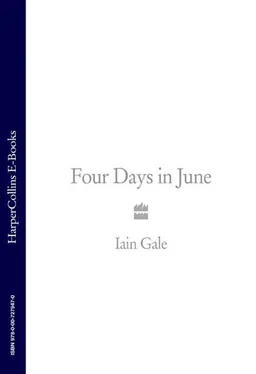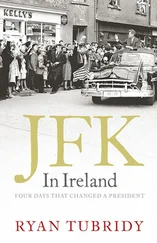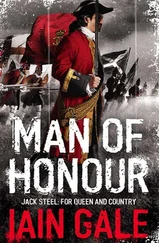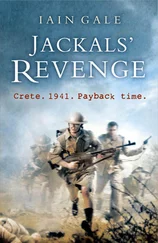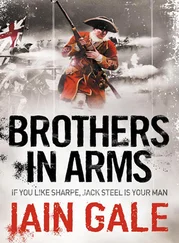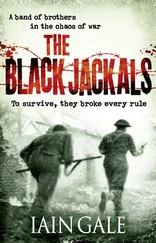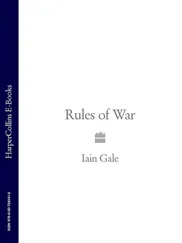‘Yes. Of course, William. I am well aware of all this. But what will he do, d’you suppose? The “monster”, as all your pretty ladies here in Brussels like to call him. Wellington is obsessed, is he not, with the idea that Bonaparte intends to turn his right flank – to cut his communications and his escape route to the sea, at Antwerp? But what, William, if he is wrong? I think that your line is too extended. Let us say that he is wrong. That Blücher is the first to be attacked. Think of it. How will you ever move fast enough to help the Prussians? I do not think it can be done. And so…’ He made a forward gesture with his hands, as if pushing between two objects. ‘ … You are split in two by the French. And then …’ He clicked his fingers. ‘ … One …’ And again. ‘ … Two. I think that what we have here, my dear friend, is a simple conflict of interest. And I am wondering whether your good friends the Prussians – Prince Blücher and Count von Gneisenau – will share my opinion?’
‘Wellington will honour his word, Miguel. You know that. He will march to Blücher’s aid.’
‘But with what, William? With what? This army of twenty nations? If anyone is aware of the fine fighting quality of the British it is I. You and I, we remember Badajoz, Salamanca, Vitoria. But this army? Wellington himself has called it “infamous”. For every British soldier you have I hear that there are two Germans, Dutch or Belgians. Half of your army is German. Fine men of course, the King’s German Legion. They fought well in Spain. But William, what of the other Hanoverians? The militia? Peasants, farmers. And one third of your men are Netherlanders – most of whom, you will not deny, wearing the same uniforms with different hats and under different colours, were only a year ago fighting loyally for Bonaparte!’ He slammed his fist hard down on the table.
De Lancey leaned forward in his chair. ‘I cannot deny what you say, Miguel. But let me apprise you of some other facts of which you may be unaware. At this moment we have 95,000 men in the field; the Prussians no less than 130,000. We have more cannon than in any previous campaign and no want of ammunition. Do you know that the Peer has been in command of his “infamous” army a good two months and that during that time he has been careful to reorganize? Do you know that in every division, save the Guards, the Duke has taken care to mix the British battalions with veteran redcoats of the German Legion? Do you know that even in the Guards’ division he has specifically commanded that the three younger battalions should be stiffened with one of old sweats from the Peninsula? Do you know that in every brigade which contains inexperienced British troops, fresh from the shires, he has placed proven battalions of German regulars? And do you know that he intends to keep any doubtful elements of Belgians and Dutch well in the rear? No, Miguel. This army is not quite the flummery you might suppose it to be.’ De Lancey sat back. Smiled. Sipped his wine.
‘William. Dear friend. Do not agitate yourself. Be sure that I have great faith in Wellington. But what I am concerned with is how he will use his force.’
‘That all depends upon Bonaparte. And we shall soon enough know that man’s intentions. You may know that for over a month now our friend Colonel Grant has been busy behind French lines gathering intelligence, just as he did so well in Spain. We know that Bonaparte has assembled a sizeable army – around 200,000 men. And that perhaps 125,000 of them are directly before us on the border. What we do not yet know is quite where they will attack. It might be at Mons. Or at Tournai. Or at Charleroi. Once we do know that, then will be our time to act.’
‘But Wellington, you know well, William, prefers to defend. That is his skill. And here is the problem, my friend. Prince Blücher – Marshal “Vorwärts” – likes to attack. It is all very fine for Wellington to draw his supplies from the coast. But Blücher must pay to supply his army. Can you imagine what it is costing him now, just to sit on his arse?’
De Lancey, for once, was silent. Knew of old that this was mere teasing. That both men believed that their mutual friend, their commander, the hero of Spain, the toast of Europe, would be victorious. They were simply playing the same games that they had before every battle in Spain. Nevertheless the conversation had stirred some genuine worries, and it disturbed De Lancey to realize that he was concerned. He stared thoughtfully at his plate, took another sip of wine and, having considered his words, smiled before opening his mouth to reply.
As he prepared to do so, the double doors of the dining room opened and d’Alava’s butler came quickly to the table and cupped his mouth to his master’s ear. D’Alava spoke. ‘It seems that you have a messenger, De Lancey.’ He grinned. ‘He has come … from your wife.’
Spotless and gleaming, a young pink-cheeked British aide-de-camp was shown in, sword clattering, spurs ringing on the polished wooden floor. He handed De Lancey a note. D’Alava laughed and thumped the table with his fist.
‘So, my dear William. You see? You are away for only one hour and already your lovely wife has need of you. Ah, my friend. What it is to be young and in love.’
De Lancey unfolded the piece of parchment. Read it quickly. Rose to his feet. Turned to the aide: ‘Wait.’ Then to d’Alava. ‘You are sadly mistaken, sen˜ or. I assure you, this is no message from my wife, but an urgent dispatch for the Duke of Wellington. I am afraid, my dear Miguel, that here is an end to our delightful dinner.’
‘Can you tell me?’
‘It is from Berkeley, our man at the Prince of Orange’s headquarters, at Braine-le-Comte. It seems that at noon today the Prince’s office received information from General Dö rnberg that Bonaparte had crossed the frontier. But the Prince was not there to receive it. He was here, in Brussels, making a report of “light gunfire” to be heard in the direction of Thuin. And, as a consequence, no one thought to take any action on Dörnberg’s message – for over two hours. That is, until Berkeley happened upon it. Miguel, we have lost two hours. Bonaparte is at Charleroi.’
‘God help us.’
‘I must go to Wellington. Adieu, Miguel. Thank you again for your hospitality. Until we meet again.’
‘On the field of battle, William.’
Their handshake – wonderfully un-British, thought De Lancey – had become for both more than a gesture of farewell. It was a symbol of faith in their mutual survival. Just as it had been before Salamanca, Badajoz, Vitoria.
De Lancey turned and walked quickly to the door, closely followed by the aide, and out into the candlelit hall, where the clatter of the young man’s spurs changed to a brighter note as they rasped on the black and white marble of the chequerboard floor. At the door De Lancey turned again and raised his hand in a final farewell.
‘Till the battle, Miguel. Then we shall know the true mettle of this army. And so shall Bonaparte.’
Smiling, he turned through the door and walked out into the warm evening. Outside, at the foot of the steps, the aide was waiting, holding his horse by the pommel of its saddle. Without a word, De Lancey, who had arrived by carriage, took the reins and hoisted himself up. Sensing that this was hardly a time to protest, the aide let go his mount and, saying nothing likewise, De Lancey urged the handy little chestnut off along the street, quickly breaking into a canter. His speed alarmed several of the promenading couples, sending them back against the shuttered windows.
It was not far to the house that Wellington had taken – an imposing ten-bay mansion, set back from the Rue Royale, to the west of the Parc. De Lancey pulled up the horse, leapt from the saddle, leaving it untethered, and rushed past the redcoated sentries, through heavy oak doors, across the courtyard and into the house.
Читать дальше
